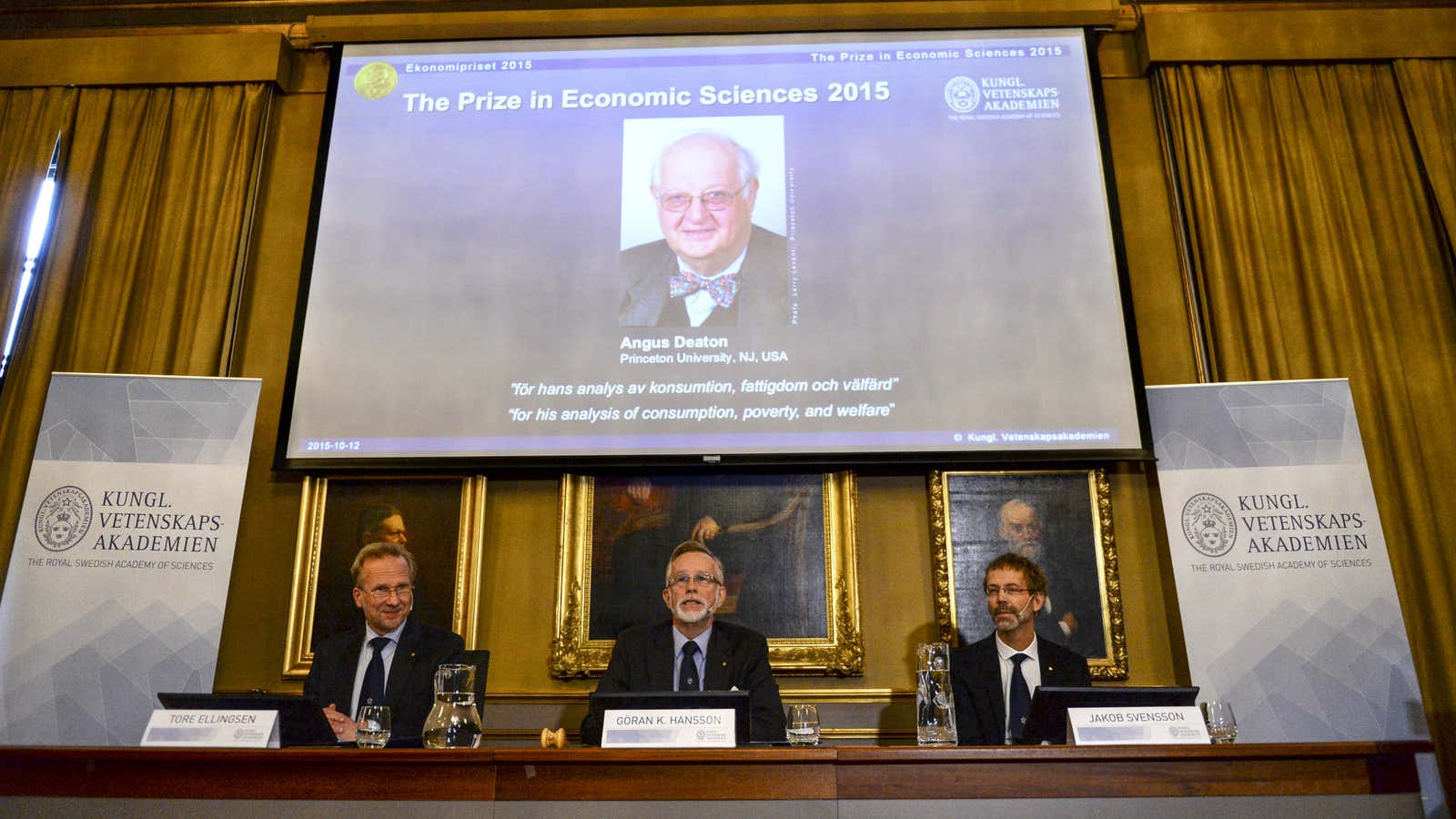The Nobel prize in economics* has been awarded to Angus Deaton, British-born professor of economics and international affairs at Princeton University. The 69-year-old received the award for his research on measuring and understanding consumption, poverty, and welfare, especially in developing countries.
Deaton strives to understand the world as it is, not how economic models suggest it should be. Consumers do not behave the same way in rich and poor countries, and poverty takes on radically different characteristics from country to country.
“When you read that world poverty has fallen below 10% for the first time ever and you want to know how we know—the answer is Deaton’s work on household surveys, data collection and welfare measurement,” writes Alex Tabarrok at Marginal revolution. “I see Deaton’s major contribution as understanding and measuring world poverty.”
Among his wide-ranging research output, Deaton shows that children consume about 30-40% of what adults consume, suggesting per-capita estimates of poverty are overstated in families with children. He also digs into data and surveys to challenge the conventional wisdom that happiness increases with age—that is mainly the case only in rich, English-speaking countries. India is an obsession of his, and in a particularly interesting paper (PDF) he examines the puzzle that Indians’ average calorie intake has fallen as they have grown richer.
Taken together, Deaton’s work addresses the shortcoming in measurement tools, challenging fundamental assumptions about common economic indicators. He lamented many economists’ bad habits in an essay last year (pdf):
Academic economists spend a lot less time with the creators and producers of data than once was the case, to the detriment of both groups; economists often do not understand the data they work with, and the evolution of national income accounting practice has taken place without much input from academic users. Yet much of what we think we know about the world is dependent on data that may not mean what we think they mean or that are contradicted by other data to which, for no very well developed reason except habit, we give less weight.
Deaton’s prize follows others awarded to researchers who challenge the basic tenets of economics. In 2002, psychologist Daniel Kahneman won the award (with Vernon L. Smith) for recognizing that human beings do not, in fact, always make rational decisions or behave in uniform ways. According to the Nobel committee, ”Deaton’s focus on household surveys has helped transform development economics from a theoretical field based on aggregate data to an empirical field based on detailed individual data.”
In other words, Deaton has helped make development economics more real.
*Alfred Nobel did not include economics when he set up awards in in physics, chemistry, literature, medicine and peace in 1895. The Swedish central bank established the award in 1968 with the title of the Sveriges Riskbank Prize in Economic Sciences in Memory of Alfred Nobel.
